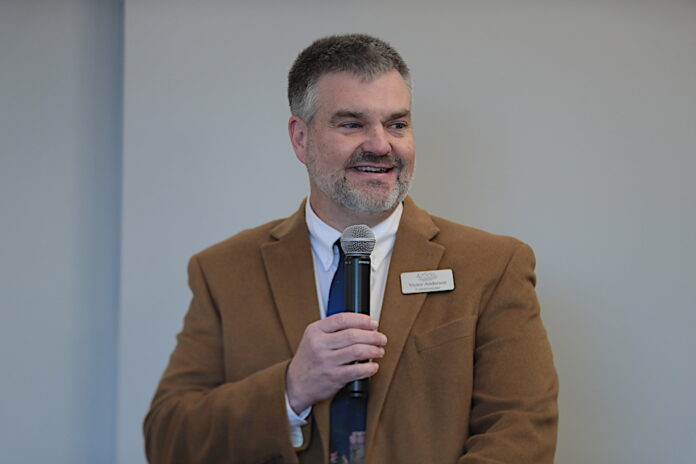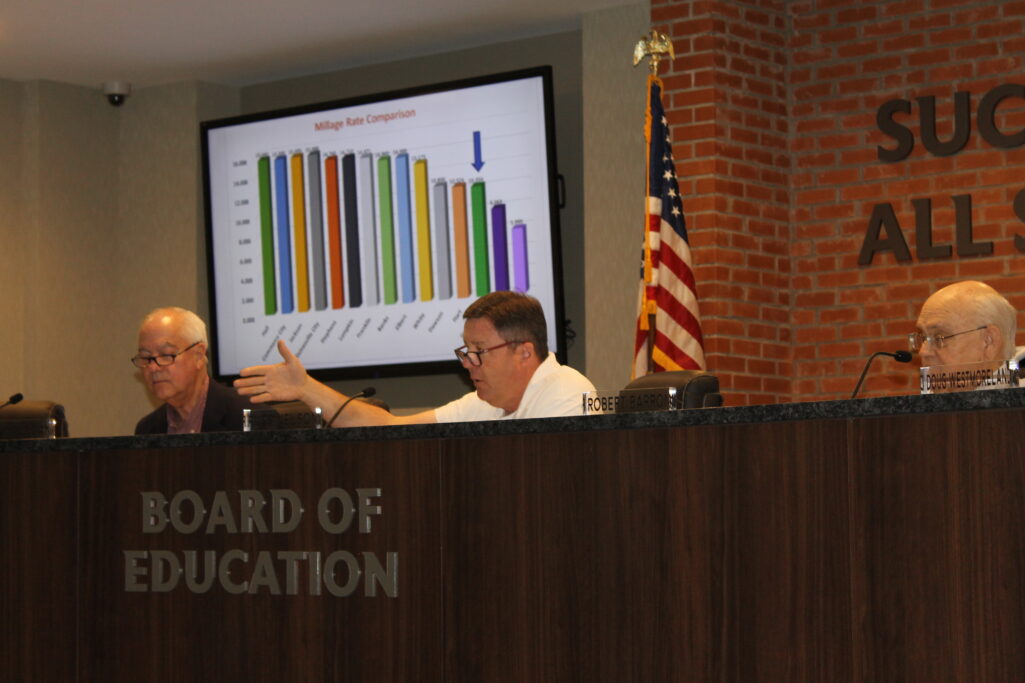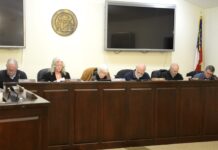
During two public hearings on Thursday, Feb. 6, the Habersham County Board of Education indicated their intention to opt-out of a property tax relief bill (HB 581). The bill, which offers a floating homestead exemption to cap annual property value increases, now has sparked controversy after a key sponsor of HB 581 disputed school officials’ position over its potential negative impact on funding.
At the hearings last week, Chief Financial Officer Staci Newsome told board members HB 581 could cut Quality Basic Education (QBE) funding (an estimated $61 million annually) to Habersham’s schools.
But in an interview with Now Habersham on Friday, Georgia State Rep. Victor Anderson, R-Cornelia, disputed these claims and emphasized his belief that HB 581 would not bring any reduction in QBE funding.
“That is not the case at all,” Anderson said. “House Bill 581 will have no impact – and I emphasize – no impact on QBE funding.”
Board members on Thursday also cited fears that adopting HB 581 would force the school system to raise the millage rate to offset potential revenue loss. But, according to Anderson, the notion the school system would have to raise taxes on property owners by default because of HB 581 is “incorrect from a standpoint of it being automatic.”
“The floating homestead exemption in HB 581 only applies to single-family, owner-occupied homes that qualify for homestead exemption,” Anderson said. “It is capped at a baseline value, but that baseline value is allowed to increase year-over-year by the rate of inflation. They will see no reduction in tax revenues at all, period. No reduction. Every property in the county that is not homestead qualified will increase and will be taxed at the increased rate.”
According to Anderson, while the school system might “not be able to take” a full millage rate rollback under HB 581, it would still see an increase in revenue, primarily from non-homestead exempt properties.
“Revenue will increase,” he said. “But it just might not increase as much as it would have without the homestead cap.”
If HB 581 were agreed upon by all seven of Habersham’s cities and the county to move forward, and if the FLOST (Flexible Local Option Sales Tax) was approved by voters, the school system could not collect any of the revenue.
Still, Habersham County is one of only eight counties in Georgia where the school system for years (since the 1980s) has received all LOST (Lost Option Sales Tax) revenue, which none of the cities in the county collect.
School officials double down

Despite Anderson’s remarks, school officials maintain that they have received little concrete information over the potential implications of the bill leading up to last week’s hearings.
“No one could answer that until (Friday, Feb. 7),” Habersham County Board of Education Chairman Russ Nelson said. “I’m not saying yay or nay to it. I’m saying that our position has not changed…our financial officer (Newsome) still thinks opting out and using the full rollback is the best for all taxpayers.”
Newsome did not respond to requests for comment from Now Habersham last week.
“We can still run numbers, and maybe it’s one more year before we’re losing millions of dollars,” Nelson said. “We’re still going to lose (revenue) in the 5-year projection (under 581).”
Nelson also pointed to unforeseen state mandates that often lead to additional costs for the school system, making the need for accurate estimates on yearly revenue crucial for Habersham’s schools.
“There’s a lot of factors (under 581),” Nelson said. “We’re going to lose money just assuming that nothing else comes down the pike, but if something else comes down the pike, it’s even worse.”
Anderson indicated that members of Georgia’s Legislature are “fast-tracking” a new bill to extend the deadline for government entities to decide whether to opt-in until 2029.
“We are hoping to get it to the Senate for deliberation this week,” Anderson said. “Hopefully, it can get through the process and get to the governor’s desk.”







